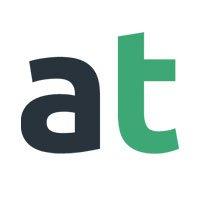Invest in multimillion-dollar art shares
Invest in farmland
Investments
$3,000
The minimum investment required on Mintus for art investment opportunities is $3,000, with investment amounts typically ranging from $15,000 to $100,000.
Investments
$15,000
The minimum investment on AcreTrader varies by listing, generally starting at $15,000, with some past deals ranging from $3,000 to $100,000. This range is determined by factors such as the size of the offering and the price per acre.
Moderate Risk
3/5
Investing in Mintus carries risks such as market volatility affecting art values, limited liquidity options until the secondary market launches, potential regulatory changes impacting investment practices, operational challenges, and the subjective nature of art valuation.
Moderate Risk
3/5
Investing in AcreTrader involves risks like casualty, condemnation, and eminent domain, common to real estate investments.
Minimum Liquidity
1/5
Mintus plans to introduce a secondary market feature, which is currently marked as "coming soon". This future addition aims to enhance liquidity by allowing investors to sell their shares in artworks to other users, although it's not yet available.
Minimum Liquidity
1/5
AcreTrader investments are considered illiquid, meaning investors should be prepared to hold their investments for the specified duration. While it may be possible to sell shares in a private transaction after this period, there is no established market for them, making resale uncertain.
Receive new reviews from Fintorial
Moderate Return
8.9 %
Mintus targets an 8.9% annual growth rate for investments, though actual returns may vary due to market conditions and art performance.
High Return
9.4-30.3 %
The returns from investing in AcreTrader vary, with historical examples showing realized internal rates of return (IRR) ranging from 9.4% to 30.3% over holding periods between 1.7 and 4.2 years. These variations highlight the potential for both moderate and significant returns, depending on the specific investment and market conditions.
Long-term Investment
5+ years
Investments through Mintus generally have a long-term horizon, often spanning several years, due to the nature of art appreciation and market trends. Exact duration may vary based on specific artworks and market conditions, with potential for earlier liquidity once the secondary market is introduced.
Long-term Investment
3-10 years
AcreTrader investments target hold periods of 3 to 10 years, though this can vary based on market conditions and sale opportunities. Properties may sell earlier or extend beyond the target period, depending on whether favorable buying offers arise or if market conditions dictate a longer hold.
Who can invest
International
Mintus allows both individual investors and institutions to invest in artworks. Individual investors need to qualify as "high net worth individuals", "sophisticated investors", or "accredited investors" and pass an appropriateness assessment. Institutions like wealth managers and family offices should contact Mintus directly for specific investment options.
Who can invest
United States
Investing on the AcreTrader platform is limited to accredited investors, as defined by SEC regulations. Non-U.S. citizens can invest if they are legal residents of the United States.
Moderate Volatility
3/5
The volatility of assets on Mintus, consisting of high-value artworks, is influenced by art market dynamics, economic factors, and the unique characteristics of each piece, such as rarity and provenance. These elements can cause fluctuations in art valuations, making them inherently volatile investments that require careful consideration.
Moderate Volatility
3/5
Farmland assets on AcreTrader typically exhibit lower volatility compared to stocks and bonds, offering a more stable investment option due to the steady demand for agricultural products and the land's intrinsic value.
Regulation and audits
FCA Regulated
Mintus is authorized and regulated by the Financial Conduct Authority (FCA) in the UK. This regulatory oversight ensures Mintus meets strict standards for investor protection, transparency, and market integrity, although specific audit details are not mentioned.
Regulation and audits
SEC Regulated
AcreTrader is regulated by the Securities Exchange Act of 1934, SEC rules, FINRA rules, and state laws, reflecting its commitment to transparency and investor protection. As a registered Broker-Dealer, it must adhere to strict financial standards, undergo regular audits, and comply with ethical practices to maintain its standing and ensure the security of its investors' assets.
Insurance
Yes
Details on insurance for artworks on Mintus are not explicitly mentioned. Typically, art investment platforms secure artworks against risks like damage or theft through insurance.
Insurance
Yes
AcreTrader does not explicitly mention specific insurance coverage for investments on its platform. Generally, real estate investments, including farmland, are insured against risks like natural disasters and fire to protect investment value.
Payouts
No Recurring Payouts
Mintus does not offer traditional dividends. Instead, investors gain returns through the appreciation and eventual sale of the artworks, receiving profits based on their share ownership.
Payouts
Dividends
AcreTrader may distribute net cash from annual income to investors after operating expenses, typically once a year in December. These distributions, based on pro rata ownership, are not guaranteed. If distributed, funds go to the investor's AcreTrader wallet or, for SDIRA or IRA accounts, to the custodian.
Withdrawals
Investors on Mintus receive their returns after the sale of an artwork, with profits made available in their wallet. They can then choose to withdraw these funds to a bank account or reinvest in other artworks on the platform.
Withdrawals
Investors can typically get their money back when the property they've invested in is sold at the end of its expected hold period, which may range from 3 to 10 years.
Extra Fees
Yes
Fees on Mintus vary by artwork and investment structure, with all fees shown in advance in the Memorandum document available for each opportunity.
Extra Fees
Yes
AcreTrader charges investors initial closing costs around 2% of the offering value and an annual 0.75% servicing fee of the land's value for management. The primary revenue comes from a 5% commission on the farm's sale, charged to the seller. There are no “carried interest fees.” Fee structures vary by deal, so reviewing offering documents is recommended for specifics.
Taxes
Annual Statement
Mintus notes that artworks don't generate income while held, so tax implications mainly stem from capital gains upon sale.
Taxes
Tax Form
AcreTrader aims to provide K-1 tax forms electronically by early March, although delays can occur due to external reporting needs. Tax treatment varies: gains on land sold within a year are taxed at ordinary income rates, while longer holdings are taxed at capital gains rates. Depreciation on buildings or equipment may affect taxes.

